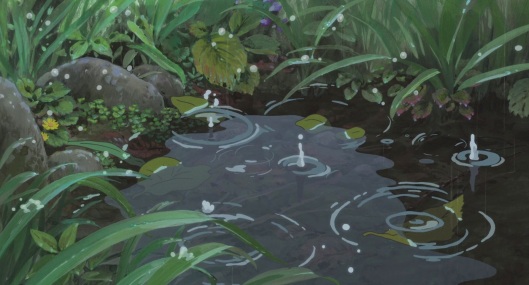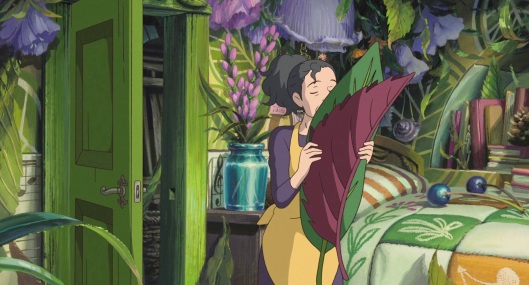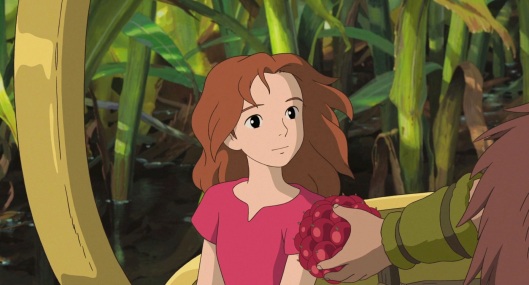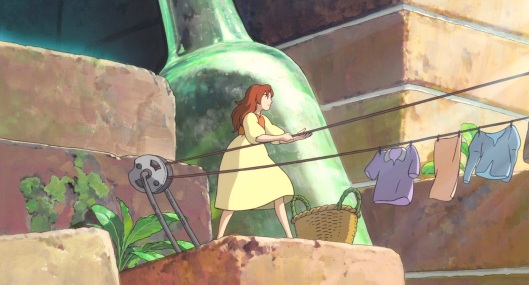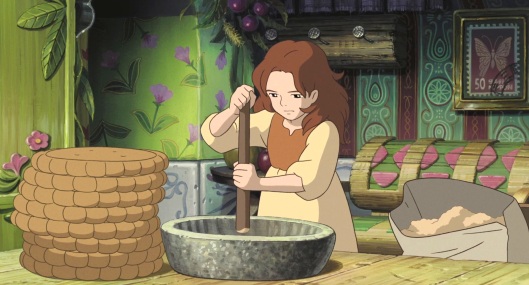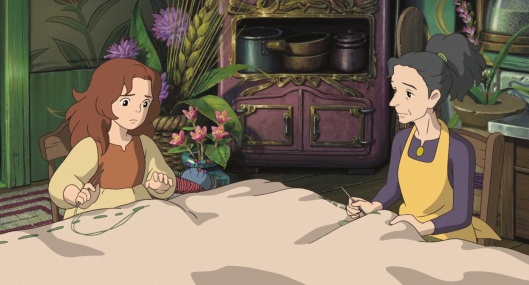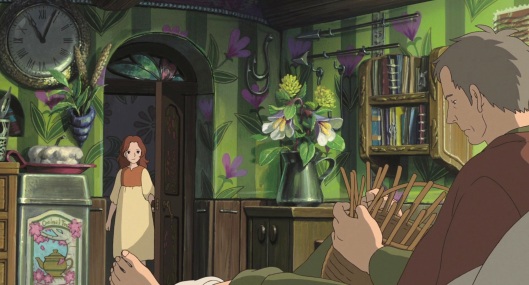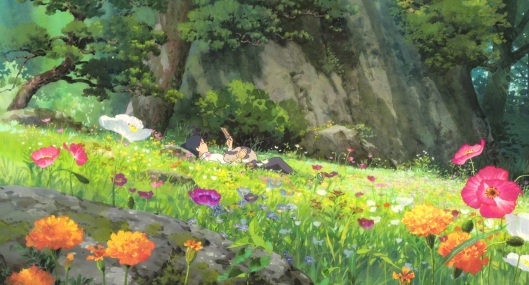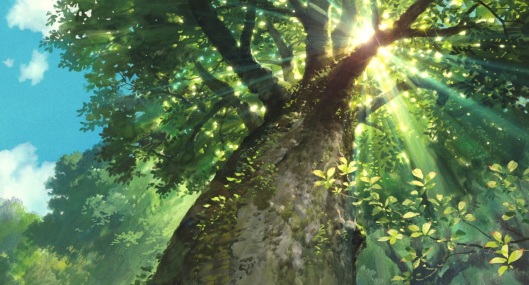 Hayao Miyazaki’s films for Studio Ghibli are always enchanting, and The Secret World of Arrietty is especially so. I watched this film on my birthday, and I’ve been thinking about it ever since.
Hayao Miyazaki’s films for Studio Ghibli are always enchanting, and The Secret World of Arrietty is especially so. I watched this film on my birthday, and I’ve been thinking about it ever since.
Unlike many of the fast-paced animated films currently in theaters, The Secret World of Arrietty takes its time, filling the screen with dreamy textures, allowing images to linger in the viewer’s mind.
Raindrops fall into puddles. The sun breaks through the trees.
For Arrietty, one of the tiny Borrowers who lives on the margins of human society, survival depends upon a connection to nature. The natural world is always present, blurring the boundaries between life outside and life indoors. Every room in Arrietty’s home is filled with flowers and grains and herbs.
Arrietty and her parents live not only by borrowing from humanity, but also by taking what they need from nature. When we’re introduced to Arrietty, she’s bringing her mother fresh sage from the garden.
The delight Arrietty’s mother experiences in the sage leaf is echoed at the end of the film, when Arrietty receives a ripe berry from the feral Borrower, Spiller. Nature is never far away for the Borrowers, and never to be taken for granted.
Nature and its beauty may surround them, but the life of a Borrower also involves labor, the constant necessity of domestic work. When she isn’t having adventures or avoiding being eaten by a cat, Arrietty is hanging laundry out to dry.
Or she’s crushing biscuits to make flour.
Or she’s learning how to sew.
Meanwhile, her mother spins and knits.
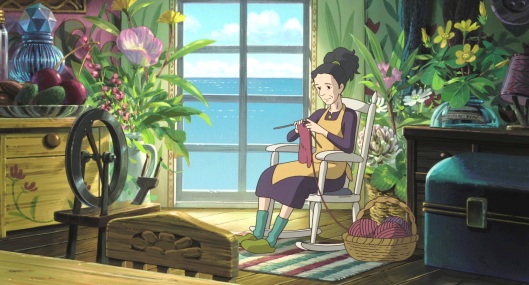
Her father works as a craftsman, making baskets when he’s sidelined by an injury.
As they’re continually working to survive, the Borrowers are contrasted with the young boy Sho, whose heart condition has left him too weak and frail even to run across the grass. Sho has his books, though, and he has his imagination. Like the Borrowers, he pays attention.
It’s hard to watch any film from Studio Ghibli without wanting to remember and treasure certain moments, almost as if they’re precious memories from one’s own childhood. These moments are often simple and without drama, like this quiet scene: Sho lies in a field of poppies, reading a book with his cat.
Slow down. Pay attention. Remember.
